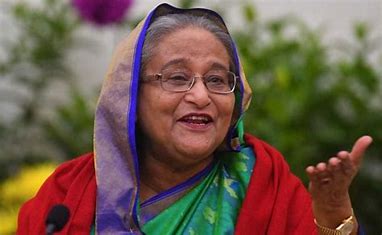The fast-moving developments in Bangladesh, including removal of Prime Minister Sheikh Hasina, have highlighted how social media was manipulated to manufacture public discourse in Bangladesh with dangerous implications.
As per a probe by non-official entities, who keep an eye on the geo-political developments, during the Bangladesh Quota Reform protests, social media activity critical of the ruling Awami League and its leader, Sheikh Hasina, was being governed from outside Bangladesh.
A significant volume of posts, videos depicting violence against protesters, and posters demonising Sheikh Hasina were traced back to the Bangladesh Nationalist Party (BNP) and its affiliated accounts.
Most importantly, many of these accounts and their content were being amplified by users based in the United States.
Hasina and her supporters, for a long time now, have been raising concerns about Washington not being happy with Hasina and had claimed that exercise at multiple levels were being carried out since the last two years to remove her.
Investigation of the page transparency of BNP-affiliated Facebook pages has revealed direct foreign intervention in the administration of these pages.
While some page admins were from Bangladesh, a considerable number were based in the United States and other countries like Malaysia. This pattern was conspicuous when compared to the Facebook page of the Awami League, where all admins were from Bangladesh.
This disparity indicates a significant level of foreign involvement in the BNP’s social media strategy, suggesting that these posts and narratives were being orchestrated from abroad, potentially to manipulate the ongoing political discourse in Bangladesh and create an anti-Hasina wave in Bangladesh.
The BNP’s strategic use of social media to manufacture and amplify anti-Awami League and anti-Sheikh Hasina sentiments points to a concerted effort to influence public opinion, the investigation has found.
The involvement of foreign-based admins in managing these pages has also brought to fore concerns regarding the authenticity and intent behind these narratives which was then used by a section of mainstream Western media and concerned diplomats to build a case against Hasina even as the quote protest was still at a nascent stage .
The external control over these pages means that foreign elements had a direct role in shaping the political narratives and destabilizing the government by fueling discontent and spreading misinformation. The amplification of BNP’s narratives by US-based accounts has also underscored the international dimension of this social media campaign.
This intervention not only enhanced the reach of these posts but also lent them a veneer of credibility by associating them with international voices. The geographical distance of these admins from the local context of Bangladesh means that the narratives being pushed may lack the nuanced understanding of the on-ground realities, thereby potentially distorting the true nature of the events and protests.







